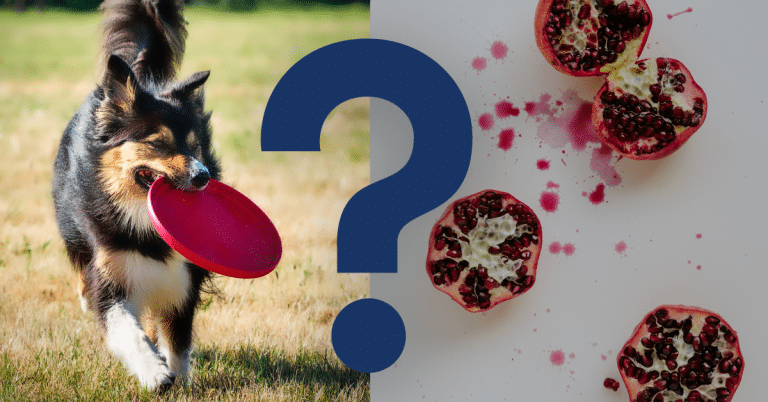Can Dogs Eat Radishes? A Vet’s Opinion

Radishes are low in calories and high in fibre, but can you feed Radishes to your dog?
Radishes are a meal that dogs can eat, but they shouldn’t be given to them unnecessarily. Root vegetables like radishes are typically acceptable for dogs to eat in small amounts as a treat.
Benefits Of Radishes For Dogs
Dogs’ nutritional demands differ from those of humans. Thus, they should primarily be met by a balanced, complete dog food diet. However, the following are a few potential benefits of giving dogs radishes in moderation:
- Radishes include antioxidant properties, including anthocyanins and vitamin C, which can assist a dog’s body in fighting off dangerous free radicals and improve their general health.
- Dental health: Radishes’ crisp texture might assist dogs in having better dental health. By manually cleaning a dog’s teeth with radishes, you may be able to prevent plaque and tartar formation and encourage healthy gums.
- Variety and Enrichment: By varying the tastes, textures, and odours in a dog’s diet, you may enrich it and give variety while providing tiny amounts of radishes or other safe vegetables as an occasional treat. Due to the wider variety of treatment alternatives, this might be especially advantageous for dogs who may have food allergies or sensitivities.
- Owner-dog ties: Giving your dog safe human foods like radishes may strengthen your relationship and foster constructive interactions between you and your pet. The option for training that is based on rewards, it may also serve to reinforce compliance and training.
- Low in Calories: Radishes are low in calories, which is suitable for dogs who need to keep their weight in check or are on a diet restricting their calorie intake. Giving dogs radishes as a low-calorie treat in moderation can help them avoid gaining too much weight.
- High in Fiber: Radishes are an excellent source of dietary fibre, which helps support a dog’s healthy digestion. For dogs with digestive problems or irregular bowel movements, fibre can help regulate bowel movements and avoid constipation.
- Radishes are a vital source of vitamins C and B6 and minerals like calcium and potassium. They are also rich in vitamins. These minerals can help a dog’s total nutritional intake in tiny doses.
- Now, it’s also essential to remember that most of these nutrients may be found in more significant quantities in dog-specific diets designed to fulfil their nutritional needs.
It’s crucial to remember that radishes shouldn’t be a dog’s primary source of nutrition and should only be given sometimes as a treat. It’s always advisable to speak with your veterinarian for individualized advice based on your dog’s unique health and dietary needs before modifying their diet or giving them human foods like radishes.

How To Safely Give Radishes To Dogs?
To protect your dog’s safety when feeding them radishes or any other human food, remember to follow these instructions:
Thoroughly wash the radishes to eliminate dirt, debris, or toxins before giving them to your dog.
- Eliminate Leaves and Stems: Eliminate any radish leaves, stems, or other portions that may be poisonous to dogs. For instance, the leaves of wild radishes may contain toxic substances and should not be given to dogs.
- Start with Small Amounts by giving your dog a bit of radish as a treat, then watch how they react. Start with a small number of radishes if it’s your child’s first time trying them to observe how their digestive system responds.
- Keep an eye out for any symptoms of an unpleasant response in your dog, such as vomiting, diarrhoea, or stomach distress.
- Limitation: Radishes should only be provided sparingly to dogs as a special treat. They shouldn’t make up the majority of their diet. Radishes, including any human food consumed in excess, might disrupt a dog’s digestive system.
- Avoid Seasonings and additions: When giving radishes to your dog, avoid seasoning them with salt, herbs, or other additions. These may cause stomach problems in dogs and are potentially hazardous.
- Provide Raw Radishes: Dogs can consume raw radishes. Avoid giving them cooked or spiced radishes because they could include spices, oils, or other dangerous compounds to dogs.
- Watch for unpleasant Reactions: After giving your dog radishes, look out for any symptoms of an unpleasant response. Radishes should not be given to your dog if you observe digestive problems, such as vomiting, diarrhoea, or discomfort. Instead, talk to your veterinarian.
Some dogs may not react well to radishes or other human foods, and others may have allergies or sensitivities. Before giving your dog any human foods, including radishes, visit your veterinarian first, especially if your dog has any known medical issues or dietary restrictions. For your dog’s safety and well-being, your veterinarian may offer tailored recommendations based on their needs.
Will Radishes Make A Dog Sick?
While radishes are typically healthy for dogs to consume in modest amounts, they can negatively affect some dogs, mainly if eaten in large amounts. Due to their high fibre content, radishes may be difficult for certain dogs to digest, resulting in gastrointestinal problems, including gas, bloating, or diarrhoea. Additionally, if your dog is known to have food allergies or sensitivities, radishes or other human foods may cause them to react negatively.
It’s also crucial to remember that radishes may contain substances harmful to dogs in particular portions, such as the leaves or stems.
Before giving radishes to dogs as a treat, removing any leaves stems, or other radish components that can be potentially toxic to dogs is crucial.
It’s always better to introduce radishes or any new food to your dog gradually and in small amounts, just like with any human meal or dietary change, and carefully watch your dog’s behaviour for any symptoms of negative responses. Radishes should not be fed to your dog if you observe any stomach disturbance, discomfort, or other alarming signs after doing so. Instead, stop feeding them and ask your veterinarian for assistance.
Additionally, it’s crucial to remember that dogs should only be given radishes sometimes as a treat and not as a regular part of their diet. The mainstay of their diet should be balanced and comprehensive dog food that satisfies their unique nutritional requirements. Before making any dietary changes, including giving your dog human foods like radishes, always check with your vet to be sure they are secure and suitable for your dog’s health and well-being.

Vet’s Summary
Dogs can occasionally be given radishes as a treat, but care must be taken to protect their safety. Since some dogs may have trouble digesting radishes owing to their high fibre content, properly wash them, remove the leaves and stems, and start with modest amounts before increasing the amount. Avoid giving radishes that have been cooked or spiced, and don’t add any salt, herbs, or other seasonings. Radishes shouldn’t be a mainstay in a dog’s diet and should only be given occasionally. Before giving your dog any human foods, including radishes, it is always recommended to speak with your veterinarian, especially if your dog has any known medical concerns or dietary restrictions.
It’s crucial to remember that radishes aren’t often thought of as a source of probiotics for dogs. Probiotics are good bacteria that help benefit a dog’s digestive system. They are often sold as supplements or in specially-made dog food. Suppose you’re considering giving your dog probiotics. In that case, it’s essential to talk to your vet first to determine the right kind, dose, and length of use depending on your dog’s particular requirements and health situation. Your vet may offer personalised guidance on how to utilize probiotics in conjunction with your dog’s food and general health plan.
Videos To Watch
Here is an elaborate video of the answer to your question about dogs eating radishes. Take a look at it and find out the following:
Watch this precise video to find out if dogs can eat radishes or not:






